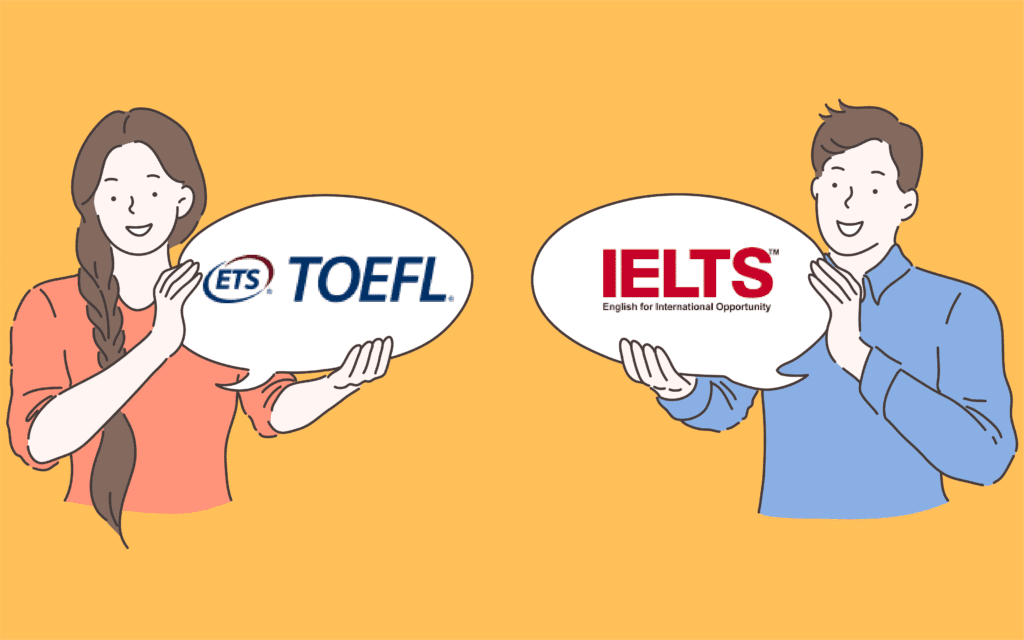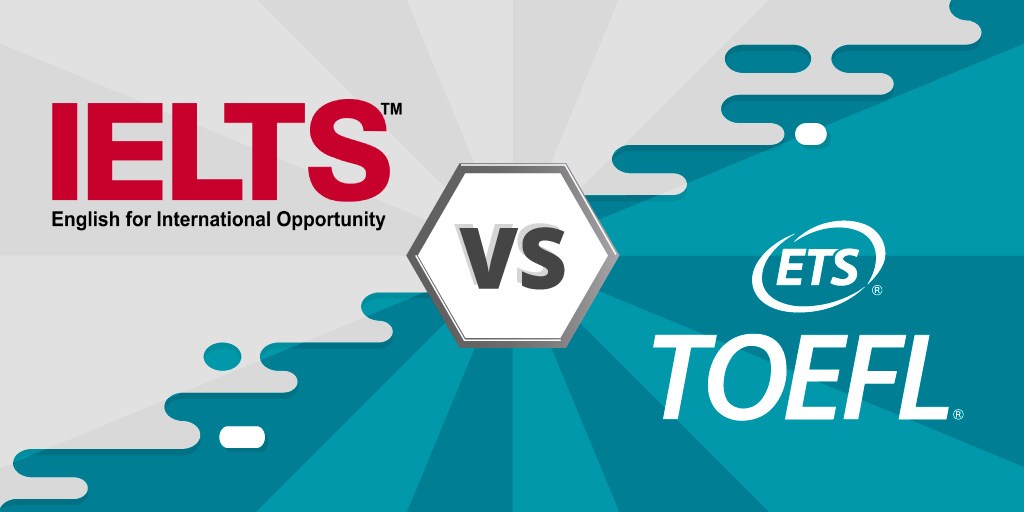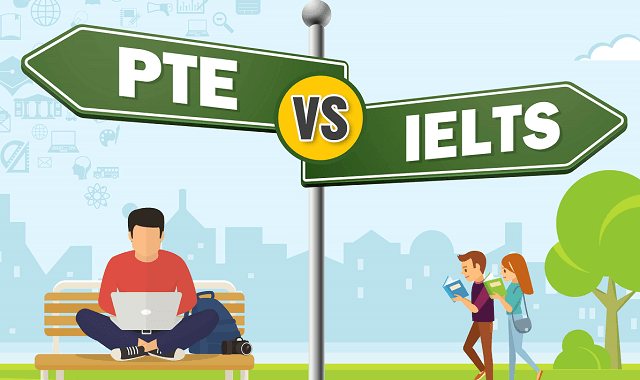IELTS vs. TOEFL: Which One Should You Take?

Choosing between IELTS vs. TOEFL IELTS depends on various factors, including your academic goals, preferred test format, and the specific requirements of the institutions you are applying to. (International English Language Testing System) and TOEFL (Test of English as a Foreign Language). While both tests have their merits, IELTS is the better choice for several reasons. It evaluates language skills more comprehensively. And it offers more flexible testing options, and is recognised by a greater number of academic institutions, professional bodies and immigration departments around the world.
What is IELTS?
Table of Contents
Toggle
IELTS stands for International English Language Testing System. It is one of the most widely recognized and accepted tests worldwide for assessing the English language proficiency of non-native English speakers. The IELTS test is designed to evaluate the language ability of candidates who need to study or work where English is used as the language of communication.
This IELTS Exam is renowned for its reliability, fairness, and accuracy in assessing English language proficiency, making it a popular choice for individuals aiming to study, work, or live in an English-speaking environment.
What is TOEFL?

TOEFL stands for Test of English as a Foreign Language. It is an internationally recognized standardized test that assesses the English language proficiency of non-native English speakers. The TOEFL test is primarily used for admissions into universities and colleges where English is the medium of instruction, as well as for immigration purposes in some countries.
TOEFL is known for its academic focus and is often preferred by institutions in the United States and Canada. And It assesses a wide range of English language skills necessary for academic success, including listening, reading, speaking, and writing.
Difference Between IELTS vs. TOEFL

| Feature | IELTS | TOEFL |
|---|
| Sections | Listening, Reading, Writing, Speaking | Reading, Listening, Speaking, Writing |
| Formats | Paper-based and Computer-based (varies by location) | Primarily internet-based (TOEFL iBT) |
| Speaking Test | Face-to-face with an examiner | Recorded responses evaluated by human raters |
| Test Delivery | Mix of question types (e.g., multiple-choice, short-answer, essays) | Emphasizes integrated tasks |
| Scoring | 0-9 band scale for each section | 0-30 for each section, total score 0-120 |
| Test Availability | Offered multiple times a month in over 140 countries | More than 50 times a year worldwide |
| Accepted Regions | Widely recognized in UK, Australia, Canada, Europe; increasingly in US | Predominantly accepted in US; also in Canada, Australia, UK |
| Preparation | British Council, IDP: IELTS Australia, Cambridge Assessment English | ETS provides official preparation materials |
| Personal Preference | Face-to-face Speaking test; broader range of question types | Computer-based test; integrated tasks |
IELTS vs. TOEFL Which One Should You Choose?

Which one between IELTS or TOEFL is better for you depends on various other choices and requirements you have. It can be difficult to decide between IELTS and TOEFL, but it’s important to pick the test that matches your goals and English proficiency level the best. But There are a number of crucial factors to take into account when contrasting these two internationally recognized English language competency tests.
Factors like difficulty level, delivery method, costs, length, speaking skills, etc might govern your choice. And In the end, which exam is best for you is a matter of personal opinion. Each exam is approved by hundreds of institutions throughout the world, and there are test dates available throughout the year.
Factors before you make a decision between IELTS vs. TOEFL:-

Here are some following factors before you make a decision between IELTS vs TOEFL:-
- University preference– You should first check what is the acceptable and preferred language test by the universities that you want to apply to.
- Time for preparation– On average, you need 3-6 weeks for IELTS preparation and 2 to 3 months for TOEFL preparation. If your application deadline is only a few months away, IELTS will be suitable.
- Computer-based or written– IELTS is conducted on either paper or computer and TOEFL is conducted only on the computer. If you have good typing speed then you can go for either and if you write better on paper, you can go for IELTS.
- Exam format– For IELTS, you can break up the sections of the IELTS papers and give them in the time span of weeks. For TOEFL, you need to take the exam in one sitting.
The Introduction to the IELTS
The IELTS (International English Language Testing System) is another English language proficiency exam jointly owned by the British Council and IDP: IELTS Australia and Cambridge English Language Assessment.
There are two versions of the IELTS: the IELTS Academic and the IELTS General Training. IELTS Academic is for people applying for higher education or a profession. IELTS General Training is for people traveling to English-speaking countries for secondary education, work experience, or work experience.
IELTS: Reading Section
The IELTS Reading section challenges your ability to read and comprehend different types of texts, both academic and general. Familiarizing yourself with the question types, practicing effective reading strategies, and building your vocabulary are key to performing well in this section. By understanding the format and expectations of the IELTS Reading test, you can better prepare to achieve your desired band score.
IELTS Listening section evaluates your ability to comprehend spoken English across different contexts and accents. By familiarizing yourself with the format, practicing listening skills, and refining note-taking techniques. You can enhance your performance and achieve your desired band score in this section of the IELTS exam.
IELTS: Learning Section
The Listening section has four to six recordings, each followed by a set of questions. The recordings are similar to conversations students encounter in daily academic life. Such as a classroom lecture or a discussion between two students or a student and teacher. Questions will be multiple choice, require you to order steps in an event or process, or require you to match objects or text to categories in a chart.
The IELTS Listening section evaluates your ability to comprehend spoken English across different contexts and accents. By familiarizing yourself with the format, practicing listening skills, and refining note-taking techniques. But you can enhance your performance and achieve your desired band score in this section of the IELTS exam.
IELTS: Speaking Section
The IELTS Speaking section is designed to assess your ability to communicate effectively in English through a face-to-face interview with an examiner. This section evaluates your spoken language skills across various tasks and topics.
IELTS Speaking section evaluates your ability to communicate effectively in English across a range of topics and tasks. By understanding the format, practicing speaking tasks, expanding your vocabulary, and improving pronunciation. And you can enhance your performance and achieve your desired band score in this section of the IELTS exam.
Introduction to the TOEFL
The TOEFL (Test of English as a Foreign Language) is an English language proficiency exam produced by the ETS. The same organization that develops the GRE (an exam for grad school admissions) and several other tests.
So, There are several versions of the TOEFL, either paper-based or computer-based.
TOEFL: Reading Section
The TOEFL Reading section assesses your ability to understand and analyze academic texts written in English. It consists of several passages followed by multiple-choice questions. For Reading, there will be three or four passages from academic texts that students must read and answer questions about.
So, The passages are from university-level textbooks that introduce a topic or discipline. There are three types of questions: standard multiple-choice, questions where students must insert a sentence into the proper spot in a paragraph. And questions where students must properly sort information into a chart or summary table.
TOEFL: Learning Section
It seems there might be a misunderstanding regarding the term “TOEFL learning section.” The TOEFL exam does not have a specific section called the “learning section.” The Listening section has four to six recordings, each followed by a set of questions. The recordings are similar to conversations students encounter in daily academic life.
Such as a classroom lecture or a discussion between two students or a student and teacher. But Questions will be multiple choice, require you to order steps in an event or process, or require you to match objects or text to categories in a chart.
TOEFL: Speaking Section
The TOEFL Speaking section evaluates your ability to communicate effectively in spoken English. It consists of six tasks designed to assess different aspects of your speaking skills. And TOEFL Speaking section aims to assess your ability to communicate effectively in academic and everyday situations.
By understanding the structure, practicing with sample questions, and focusing on improving your speaking skills. And then You can confidently approach this section and achieve your desired score in the TOEFL exam.
FAQ' s for IELTS vs. TOEFL
- IELTS: Offers a face-to-face Speaking test, assesses British and Australian English, and includes both Academic and General Training versions.
- TOEFL: Primarily internet-based, assesses American English, and focuses on academic English proficiency.
Both TOEFL and IELTS are accepted by most universities abroad. Better can be a relative here. If you ask for the USA or Canada, TOEFL is better, if you ask for admission in the UK or visa and immigration requirements to a native English speaking nation then IELTS is more widely accepted. Similarly, IELTS and TOEFL have other differentiating features that make each one of them better for candidates in different scenarios.
- IELTS: This Information is available on the official IELTS website (ielts.org) and from test centers such as British Council and IDP: IELTS Australia.
- TOEFL: Information is available on the official TOEFL website (ets.org/toefl) and from ETS authorized test centers.
Yes, there are differences in test preparation materials and strategies for IELTS and TOEFL due to variations in format and question types. It’s advisable to use specific preparation resources tailored to each exam.
- IELTS: Often required for immigration to English-speaking countries like Canada, Australia, and the UK.
- TOEFL: Not typically required for immigration purposes; IELTS is more commonly accepted.
Valid, government-issued ID (e.g., passport). Ensure the name matches the registration details.
For further information, refer to the official IELTS and TOEFL websites or contact the test centers directly.
